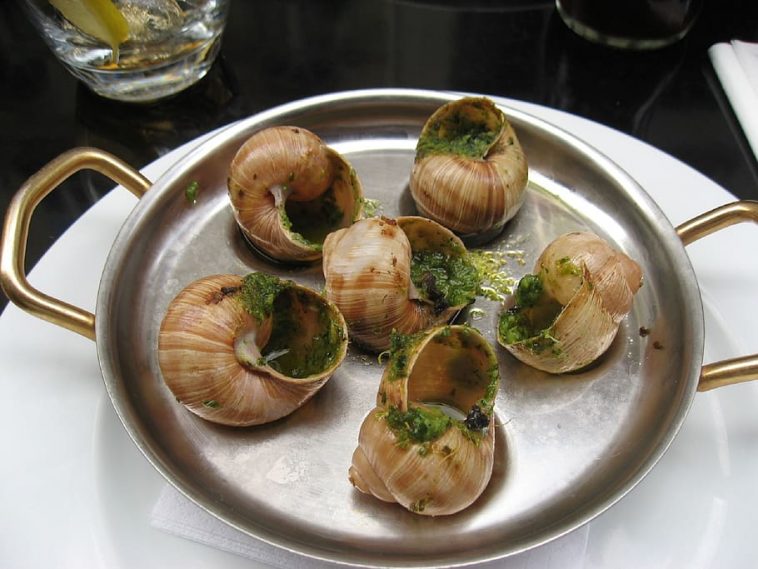Snails are a street-stall staple, especially in Marrakech on Djemaa el Fna square, where a
line of sturdy carts sells them by the broth-filled bowl. The flavorful broth sipped at the
end is said to be a restorative and digestive. But what’s in it? One respected attar (spice
seller) in Marrakech gave me a list of more than fifteen spices from thyme and licorice to
lavender and tea leaves. “Which are the most important?” I asked. “They all are,” he said.
“The balance has to be right.”
Here I have adapted the spice blend of Choumicha, the queen of contemporary
Moroccan cooking. It’s a relatively simple one, but flavorful and balanced.
Moroccan snails are white with distinctive chocolate brown whirls, smaller than the classic
French escargot. Live snails added to boiling water will retract inside the shell and be
hard to remove later to eat. When the snails are first cooked, it’s important to bring the
water to a very slow boil. While live snails can be hard to find, many gourmet shops carry
preserved ones in cans.
DJEMAA EL FNA
SNAILS IN BROTH
babbouche
SERVES 4 T O 6
2 lb/910 g fresh snails or snails in brine
Salt
Wine vinegar or other vinegar for
cleaning snails
2 sprigs dried thyme
1⁄2 Tbsp aniseed
1⁄2 Tbsp caraway seeds
1⁄2 tsp gunpowder green tea leaves
Peel from 1⁄2 orange, white pith scraped away
Two 3-in/7.5-cm pieces licorice root
(see page 50) or 1 tsp ground aniseed
2 bay leaves
1⁄2 tsp dried mint
10 sprigs fresh mint
2 small dried hot red chiles
If using live snails, wash with plenty of water.
Use salt and vinegar to scrub clean if the shells
are dirty. Repeat as needed. Rinse well. Put the
snails in a large pot with about 3 qt/2.8 L water.
Bring to a slow boil over low heat—figure about
45 minutes for this—watching to keep the snails
inside the pot. When the water reaches a boil
and foam comes to the surface, drain the snails
in a colander. Rinse the snails well with running
water and rinse out the pot.
